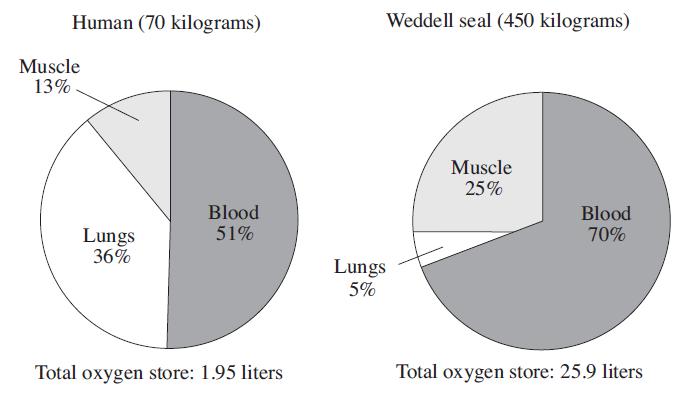During a dive, a Weddell seal's blood flow to the abdominal organs is shut off, and oxygen-rich
Question:
During a dive, a Weddell seal's blood flow to the abdominal organs is shut off, and oxygen-rich blood is diverted to the eyes, brain, and spinal cord. Which of the following is the most likely reason for this adaptation?
(A) To increase the number of red blood cells in the nervous system
(B) To increase the amount of oxygen reaching the skeletomuscular system
(C) To increase the amount of oxygen reaching the central nervous system
(D) To increase the oxygen concentration in the lungs
A scientist studies the storage and distribution of oxygen in humans and Weddell seals to examine the physiological adaptations that permit seals to descend to great depths and stay submerged for extended periods. The figure below depicts the oxygen storage in both organisms.
Step by Step Answer:

The Princeton Review AP Biology Premium Prep 2023
ISBN: 9780593450659
2023 Edition
Authors: The Princeton Review





